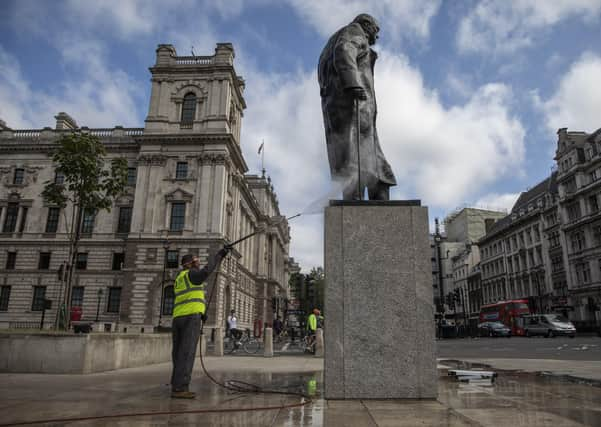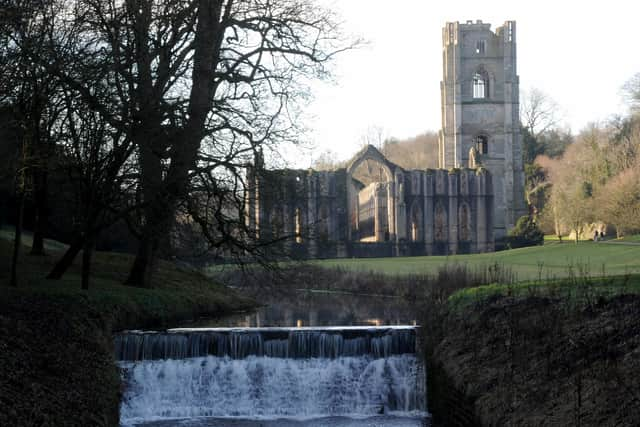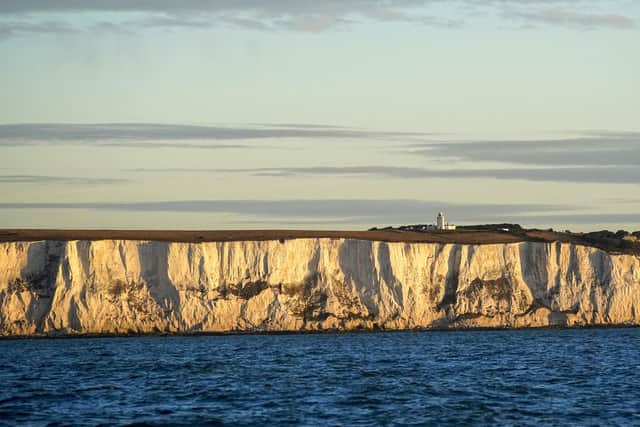Climate crisis and putting history before culture wars – Joseph Silke


Without visitors, and the money that they bring, some of our most precious cultural assets have been struggling to meet the costs of maintenance and restoration.
While footfall from international tourism is unlikely to return to pre-pandemic levels for some time yet, domestic tourism provides a chance for heritage sites to begin bouncing back from the effects of Covid-19.
Advertisement
Hide AdAdvertisement
Hide AdIt is no understatement to say that heritage sites have been a focal point of bitter cultural tensions over the past year too.


The way we view and interpret our history has been under the microscope in the wake of the Black Lives Matter protests.
Anti-racism campaigners have sought to raise greater awareness of the links between certain assets and the history of slavery and colonialism. This even led to the vigilante-style toppling of the statue of the slaver Edward Colston in Bristol last June.
And the clamour to reassess elements of our national and local stories has left some conservatives rather nervous, fearing that a wave of iconoclasm could destroy cherished elements of our past in the name of social justice.
Advertisement
Hide AdAdvertisement
Hide AdSuch fears have been compounded by the targeting of the statue of Sir Winston Churchill in London. While some heritage organisations might adapt the way they present aspects of the past, conservatives need not be genuinely alarmed. Former Culture Minister Lord Vaizey is right that recognising historical facts isn’t unpatriotic, it’s essential to nuanced historical enquiry.


The gravest threat to our heritage is not modern day roundheads tearing down icons, but the climate crisis. It is a threat that comes in many forms, from flooding and storms to soil degradation and fires.
Heritage sites, both inland and on the coast, are at risk, and the problem is only likely to get worse without appropriate remedial action.
If conserving our history means anything, it must involve recognising this existential challenge. Combating climate change to conserve the natural environment and protect our heritage isn’t woke, it’s innately conservative.
Advertisement
Hide AdAdvertisement
Hide AdOnly recently, part of a castle on England’s south coast dating back to the reign of Henry VIII collapsed during a storm, despite no prior concerns about major structural problems.
As global temperatures continue to rise, adverse weather events like storms are likely to become more common, meaning the risk of such damage occurring becomes greater. Flooding is also of particular concern. Fountains Abbey, preserved for 800 years, is having to put in place preventative measures.
Landscapes, which have been so valuable during the pandemic, are also threatened. Increased rainfall has resulted in landslides and coastal degradation around the Giant’s Causeway in Northern Ireland and rising sea levels mean landmarks such as the chalk White Cliffs of Dover, an iconic landmark, are at risk of shrinking at a faster rate due to erosion.
Responding to the crisis takes two forms. The first is taking action on decarbonising the economy and society to reach net zero by 2050 at the latest. The UK was the first major country in the world to legally commit to achieving this and the UK has the opportunity to show bold, global leadership with the UN Climate Change Conference, COP26, in Glasgow later this year.
Advertisement
Hide AdAdvertisement
Hide AdProtecting sites is also about adapting them to improve resilience to climate change. In Highgate Cemetery, the burial place of Karl Marx and Douglas Adams among others, falling trees and debris caused by extreme and volatile temperatures and invasive species have caused significant damage. Custodians are having to rethink the design of the site.
The climate crisis is what those who care about preserving our history should be most concerned about, more than the supposed threat from the culture wars. The climate crisis is often thought of as an existential danger to our future, something we need to avert for the generations to come. Indeed, it is. As we approach COP26, however, the future isn’t the only thing on the line: our treasured past is too.
Support The Yorkshire Post and become a subscriber today. Your subscription will help us to continue to bring quality news to the people of Yorkshire. In return, you’ll see fewer ads on site, get free access to our app and receive exclusive members-only offers. Click here to subscribe.
Comment Guidelines
National World encourages reader discussion on our stories. User feedback, insights and back-and-forth exchanges add a rich layer of context to reporting. Please review our Community Guidelines before commenting.